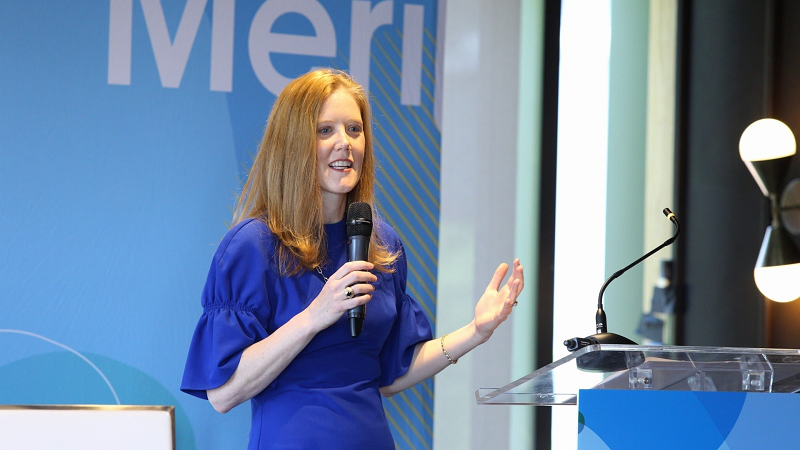
In the hands of hostile nation-states, emerging technologies can pose grave threats to U.S. security and prosperity. However, smart investments and guardrails for emerging technologies could give the U.S. an edge in cybersecurity and combating growing cyber threats.
During MeriTalk’s Cyber Central event today in Washington, D.C., Col. (R) Candice Frost, former commander of the Joint Intelligence Operations Center at Cyber Command, said that emerging technologies are a “double-edged” sword – bringing a multitude of benefits for U.S. national defense, but could be equally as dangerous if in the hands of adverse nation-states.
A major example, according to Frost, is artificial intelligence. The growing technology has received mixed reactions, from excitement to concern. But the consensus amongst many in both the public and private sector is that to ensure that AI does not cause harm to the public, the U.S. – particularly the Federal government – needs to ensure there are sufficient guardrails in place when implementing the technology.
“Where we see AI for bad is with proxy cyber criminals attacking public and private entities as a part of their ransomware campaign. Where we see AI for good is the use of security analysis reports, analytics, indicators of compromise, there are some really great things about artificial intelligence,” Frost said. “We can use it to make sure greater and more complex types of attacks are actually stopped earlier, but we have to understand what’s underneath the hood.”
She explained that baking security into AI applications and placing guardrails are the first steps to ensuring public and private companies can enjoy the benefits of AI capabilities while protecting themselves against possible nefarious uses of the technology by adversaries.
“And companies are asking Congress for this, and this is a big change as to what had happened in the past. So, I’m really excited to see how we’re taking this on as a country,” Frost said.
Just last month AI bigwigs wrote a letter to Congress asking for further training of AI systems and for a six-month halt on further utilization due to fears that advanced AI may pose a threat to humanity.
In addition, Frost explained that ensuring that the U.S. gains the good in emerging technology and protects itself against the negative requires “true” partnerships between the public and private sectors.
“When we see emerging technologies and where they are going forward, it’s really an area of shrinking timelines of development and maturation of technologies. But there’s a blurred line between military application and commercial endeavors, and this I think is a good thing,” Frost said. “We don’t need to have kind of those defining moments where Silicon Valley lives on one side, D.C. and the military-industrial complex lives on another.”
According to Frost, working together as “true partners” in both the public and private sectors will get more done and take care of national security itself.
“So, areas like artificial intelligence, biotechnologies, robotics and automation, and smart materials and manufacturing, these are areas I see right now that we have partnerships together and we are going to go much further and faster,” she said.
